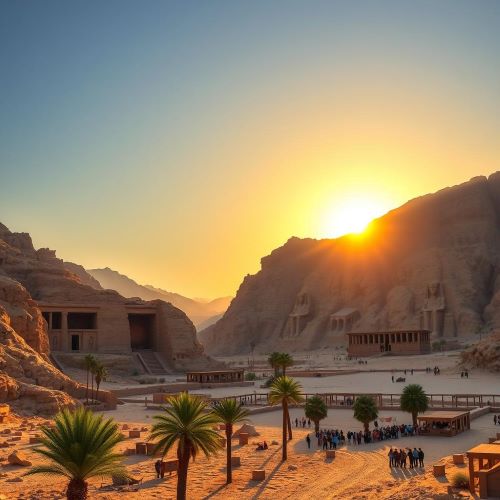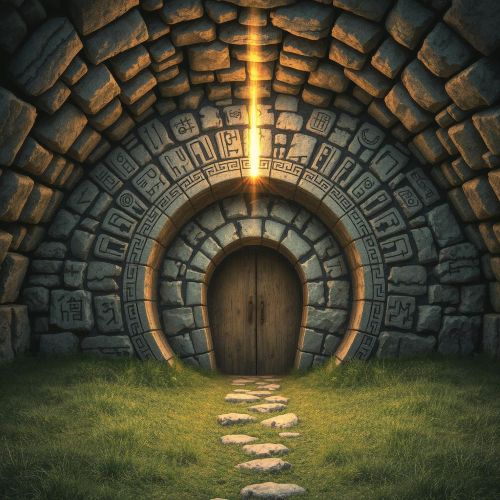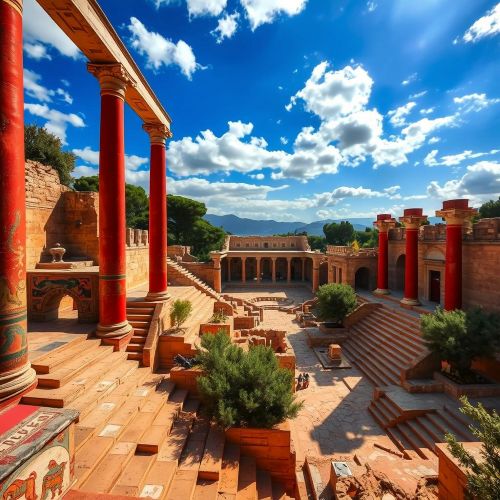Langun-Gobingob Caves : Entrance to another Realm
At a glance
| Description | |
|---|---|
| Mythology | Philippine Mythology |
| Country | Philippines |
| Closest airport | Daniel Z. Romualdez Airport (TAC), Tacloban
Calbayog Airport (CYP), Samar |
| Type | Natural Formation |
| Accessibility | 9/10 |
Introduction
The Langun-Gobingob Cave System, or Calbiga Cave, stands as the largest cave system in the Philippines and one of Southeast Asia’s most expansive. Located in the town of Calbiga, Samar, it spans approximately 2,968 hectares, offering explorers a labyrinth of 12 main caves with stunning formations, underground rivers, and immense chambers. Beyond its natural beauty, Langun-Gobingob holds deep mythological and cultural significance, drawing in those intrigued by Philippine folklore. This remarkable underground world blends ecological marvels with tales of local legends, creating a unique experience where adventure meets spirituality and cultural heritage.
Connection with Mythology
The Langun-Gobingob Cave System is not only a remarkable natural wonder but also a site rich in mythology and local folklore. According to tradition, the caves are believed to be the home of various “anitos,” or ancestral spirits, who guard the caves and their treasures, permitting only the worthy to enter. The system’s name derives from two deities, Langun and Gobingob, thought to protect the area, further embedding the caves in local mythological beliefs. These tales speak of enchanted beings like “kapres” (tree giants) and “tikbalangs” (half-human, half-horse creatures) inhabiting the caves, adding to its mystique.
The caves are viewed as sacred spaces where ancient deities are believed to dwell, emphasizing a common cultural theme where nature is seen as spiritually alive. This sacred connection is reinforced through the cave’s name, Langun, which is tied to a mythological figure, symbolizing the intertwining of folklore with the region’s identity. The caves’ role as protectors of the land reflects the local belief that the natural world holds divine power, safeguarding both the environment and its people.
The legend of Mabuting Bathala, a supreme deity in the local folklore, further highlights the caves’ spiritual importance. Bathala’s emergence during key events suggests that the caves serve as portals to the divine, bridging the physical and spiritual realms. This belief underscores the caves as places of blessing, intervention, and spiritual guidance, especially during critical moments in the community’s life.
The caves also continue to be sites for spiritual rituals, often used by shamans, reflecting the ongoing cultural and spiritual practices of the local people. The mystical atmosphere of the caves, with their echoing chambers, fosters a sense of reverence, making them an ideal setting for worship and reflection.
For many visitors, the Langun-Gobingob Cave System is more than just a place for adventure. It is a spiritual journey that connects them to their cultural heritage. The tales surrounding the caves enhance the experience, allowing explorers to connect not only with the natural beauty of the site but also with the rich mythology and traditions that shape the local identity. This profound sense of connection is especially felt by those with Filipino roots, deepening their appreciation for the Philippines’ cultural heritage.
Ways to Get There
Getting to the Langun-Gobingob Cave System may require some effort, but the experience is well worth it. Here’s how to reach this hidden gem:
By Air: The nearest airport is in Tacloban City, roughly 100 kilometers from Calbiga. Flights to Tacloban are available from major cities like Manila and Cebu.
By Land: From Tacloban, you can take a bus or van to Calbiga, which typically takes 2-3 hours. While public transportation is available, renting a private vehicle is recommended for a more convenient and comfortable journey.
By Sea: If you’re coming from nearby islands, ferry services to Tacloban or Ormoc are available, from where you can continue by land to Calbiga.
Local Transport: Once you arrive in Calbiga, hire a local guide and take a habal-habal (motorbike taxi) to the cave entrance. The trek to the caves is a bit challenging, so make sure you’re prepared with the right gear and supplies.
The journey to the Langun-Gobingob Cave System begins in Calbiga, about a two-hour drive from Tacloban. Upon arrival, visitors must register at the local tourism office and hire a local guide, as this is required for both safety and a richer experience.
The one-hour trek to the cave’s entrance takes you through lush greenery, offering a glimpse of the region’s diverse wildlife. As you get closer to the cave, the towering trees and rugged landscape set the stage for the awe-inspiring formations that lie ahead.
What to Look For
The Langun-Gobingob Cave System is renowned for its impressive geological features, shaped over millennia. As you explore the caves, you’ll encounter a variety of awe-inspiring formations:
The Stage: This dazzling flowstone formation, illuminated by headlamps, is one of the cave’s most striking features. Its broad, gleaming surface gives the appearance of a grand stage, offering a dramatic visual treat.
Chandeliers and Windows: Some chambers are adorned with massive chandelier-like formations, while natural openings in the cave walls allow sunlight to filter in, creating a magical, almost otherworldly glow.
Gobingob and Langun Caves: These two main chambers provide distinct experiences. Gobingob is famed for its vast expanses, ideal for spelunking, while Langun is known for its deeper, more challenging passages, adding an adventurous element to the exploration.
Unique Ecosystem: The cave system is home to a range of wildlife, from bats to endemic cave fish, offering an exciting glimpse into the creatures that thrive in the dark, isolated environment.
Beyond its remarkable rock formations, the Langun-Gobingob Cave System offers additional natural wonders:
Underground Rivers and Pools: The cave system features winding underground rivers and crystal-clear pools, providing an ethereal experience for visitors.
Vast Chambers and Halls: The Gobingob Chamber is particularly notable, so large it could accommodate multiple football fields, showcasing the scale of the system’s interior.
Diverse Wildlife: Aside from bats and swiftlets, the caves support a variety of cave-adapted creatures, contributing to the unique biodiversity of the area.
Intricate Rock Sculptures: Many of the formations resemble animals, faces, or other natural figures, sculpted over thousands of years by the forces of water and time.
Need a place to stay? Book your hotel room now!
Importance in cultural history
The Langun-Gobingob Cave System is an important cultural and historical site, not only for the local Waray-Waray people but for the Philippines as a whole. It has yielded valuable archaeological findings, including ancient pottery and tools that shed light on the early lives of the region’s inhabitants. For the local community, the caves are sacred, and traditional rituals are still practiced to honor the spirits believed to reside within. As a major eco-tourism destination in Samar, the caves attract visitors from around the world, and there are ongoing efforts to protect their natural beauty and delicate ecosystems for future generations.
The caves’ significance extends beyond their visual allure to encompass their ecological and cultural value. The stunning rock formations, biodiversity, and unique ecosystems make the site a key attraction for nature lovers and tourists, while its connection to the local community’s spiritual practices ties it to the rich cultural heritage of the region. Legal protections under Philippine law, including their status within the Samar Island Natural Park, ensure that both the natural environment and the cultural narratives associated with the caves are preserved. These measures underscore the importance of safeguarding both the environment and the traditions that have evolved around it.
The caves also play a key role in supporting sustainable local tourism. The establishment of guided tours offers a way for the local community to benefit from eco-tourism, while simultaneously ensuring the preservation of the site. By hiring local guides and promoting responsible tourism practices, the community helps protect the cave’s cultural and natural significance while sharing their history with visitors. This sustainable approach fosters greater respect for both the cultural heritage and the environment, allowing the caves to continue serving as a meaningful site for future generations to explore and appreciate.
Best time to travel
The ideal time to visit the Langun-Gobingob Cave System is between November and May, when the dry season prevails in the Philippines. This time of year offers more manageable trekking conditions, with drier paths that make cave exploration safer and more enjoyable. The predictability of the weather during these months also reduces the risks of flooding or slippery trails that can occur during the rainy season.
Visiting during the dry season allows travelers to focus entirely on the cave’s wonders without the concern of unpredictable weather. For those seeking a deeper cultural experience, February is a great month to explore the region. During this time, local festivals celebrate Samarnon culture, featuring traditional music, dance, and crafts. Engaging in these festivities adds another layer to the trip, offering a richer understanding of the area’s cultural heritage alongside its natural beauty.
Frequently Asked Questions
Lorem ipsum dolor sit amet, consectetur adipiscing?
Lorem ipsum dolor sit amet, consectetur adipiscing elit. Praesent convallis vestibulum justo, ac tincidunt nunc vehicula quis. Nullam id dolor quis orci malesuada feugiat. Curabitur aliquet libero at urna ullamcorper, ac ultricies nulla dapibus.
Lorem ipsum dolor sit amet, consectetur adipiscing?
Lorem ipsum dolor sit amet, consectetur adipiscing elit. Praesent convallis vestibulum justo, ac tincidunt nunc vehicula quis. Nullam id dolor quis orci malesuada feugiat. Curabitur aliquet libero at urna ullamcorper, ac ultricies nulla dapibus.
Lorem ipsum dolor sit amet, consectetur adipiscing?
Lorem ipsum dolor sit amet, consectetur adipiscing elit. Praesent convallis vestibulum justo, ac tincidunt nunc vehicula quis. Nullam id dolor quis orci malesuada feugiat. Curabitur aliquet libero at urna ullamcorper, ac ultricies nulla dapibus.
Lorem ipsum dolor sit amet, consectetur adipiscing?
Lorem ipsum dolor sit amet, consectetur adipiscing elit. Praesent convallis vestibulum justo, ac tincidunt nunc vehicula quis. Nullam id dolor quis orci malesuada feugiat. Curabitur aliquet libero at urna ullamcorper, ac ultricies nulla dapibus.
Lorem ipsum dolor sit amet, consectetur adipiscing?
Lorem ipsum dolor sit amet, consectetur adipiscing elit. Praesent convallis vestibulum justo, ac tincidunt nunc vehicula quis. Nullam id dolor quis orci malesuada feugiat. Curabitur aliquet libero at urna ullamcorper, ac ultricies nulla dapibus.








